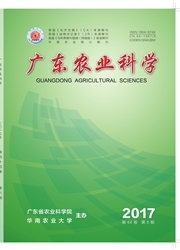

 中文摘要:
中文摘要:
糖类基质产甲烷是厌氧发酵技术的重要内容,如秸秆等许多复杂有机物都是首先水解为可溶性糖溶液,进一步产酸产甲烷.以葡萄糖为碳源对糖类基质溶液产甲烷的主要影响因素,如有机浓度、碱度、接种量等进行了研究.结果表明,葡萄糖浓度高于10 000 mg/L初始浓度时,产气量明显下降,系统酸化难以获得稳定的产甲烷条件;通过添加碳酸氢钠提高溶液碱度值对增进产甲烷十分有效,在8 000 mg COD/L初始浓度下,初始碱度值为600mg CaCO3几时可顺利进入产甲烷阶段,在1 500~3 300 mg CaCO3/L的碱度范围,碱度值增加对提高甲烷产量无显著影响.影响产甲烷的显著性因素依次为,接种量>初始碱度>初始C/N;初始C/N与总产气量和甲烷产量的相关性均较低.
 英文摘要:
英文摘要:
Carbohydrate is a type of important substrate of anaerobic fermentation technique to produce methane. Many complex organics such as straw are first hydrolyzed to soluble sugar solution, further to produce acid and methane. The impact factors to the methanogenic features of sugar substrate were studied at high organic loading condition. The accumulative biogas decreased above 10 000 mg COD/L organic loading in the anaerobic fermentation, when glucose used as the sole carbon source, acidification occurred in the system caused the difficultly obtained stable methanogenic conditions. The addition of sodium bicarbonate alkalinity was approved to be a quite effective strategy to ensuring the methane production with sugar solution substrate at high organic loading. The initial alkalinity concentration of 600 mg CaCO3/L could guarantee the methanogenic conditions at the organic loading of 8 000 mg COD/L, whereas in the alkalinity concentration range of 1 500-3 300 mg CaCO3/L, the increase of alkalinity concentration had no significant effect on the increase of methane production. Orthogonal test disclosed that the most important factors were followed by inoculums proportion, initial alkalinity concentration and C/N.
 同期刊论文项目
同期刊论文项目
 同项目期刊论文
同项目期刊论文
 期刊信息
期刊信息
